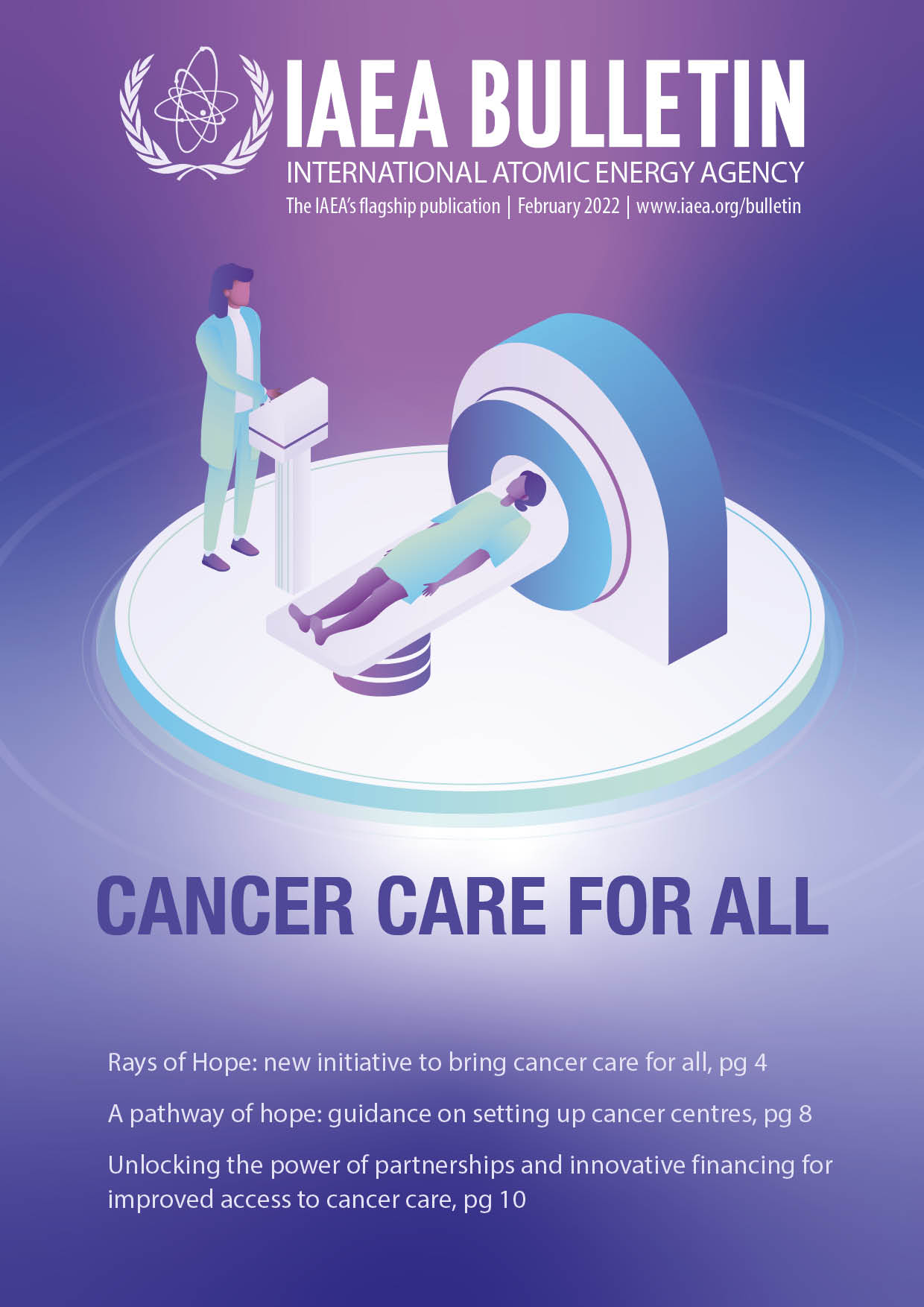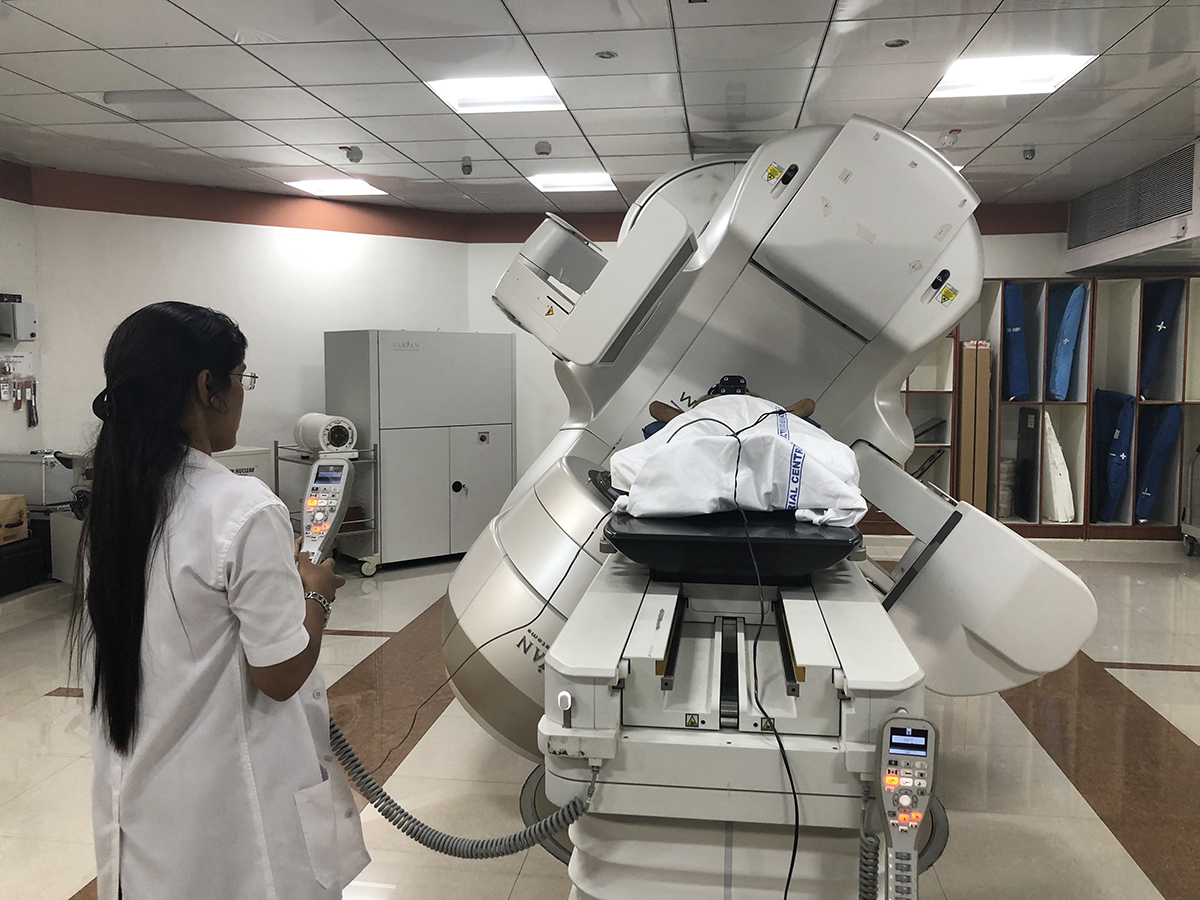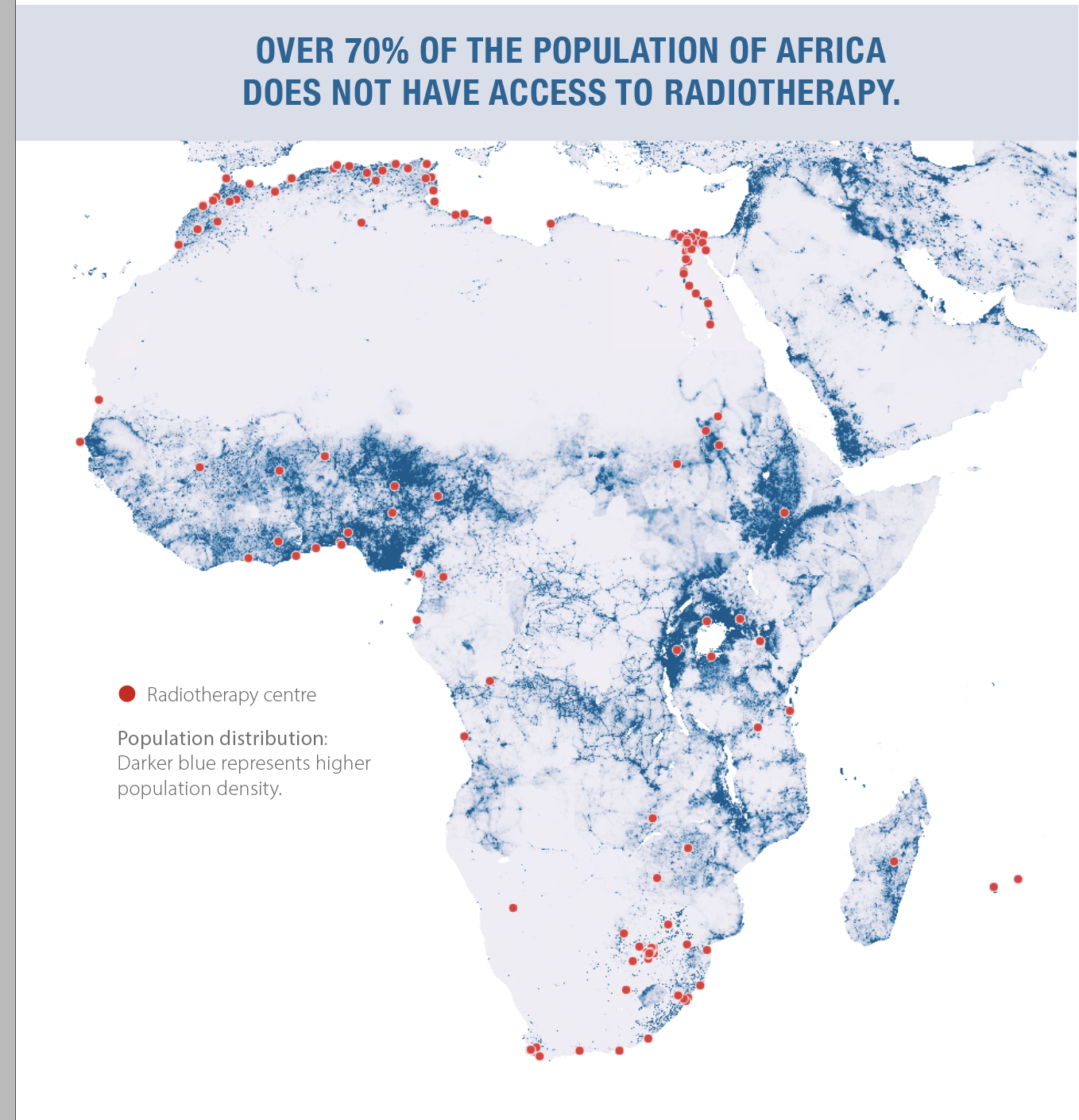The chances of surviving cancer depend considerably on where you live in the world. For many people in low and middle income countries (LMICs), access to life-saving diagnostic and treatment services is still lacking — often stacking the odds against surviving a cancer diagnosis.
The lack of access to treatment is most acute in countries without facilities and personnel trained in radiotherapy. Radiation therapy is recognized as an essential tool in the cure and palliation of cancer, and is fundamental for treating over half of all cancer patients. Nevertheless, over 70 per cent of the population in Africa does not have access to radiotherapy, while other regions also have significant gaps in access. Only 5 per cent of global spending on cancer goes to LMICs and it is estimated that, by 2030, 70 per cent of cancer deaths will occur in these countries. A new IAEA initiative, Rays of Hope, is setting out to change that and to help LMICs increase access to cancer care.
Over one third of all cancers can be prevented, and some of the most common forms — including cervical, breast, head and neck, and colorectal cancers — are curable if they are detected early and treated appropriately.
National cancer policies and programmes, when well conceived and implemented, will help reduce the cancer burden and improve services for cancer patients and their families, regardless of the country context.


